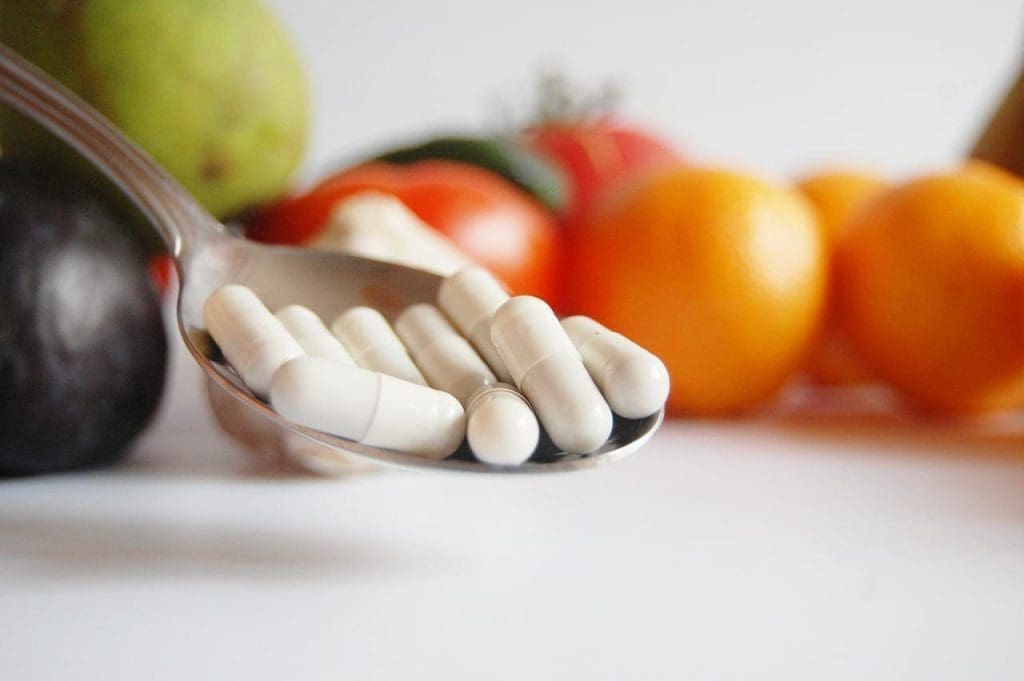Every year, products are discontinued or slammed in the press when news breaks that they’re not as natural as they claim to be. Generally speaking, society as a whole constantly questions what is inside the foods we eat, but we never seem to question the vitamins that so many of us swear by.When was the last time you read the label on one of your vitamin bottles and researched where those ingredients actually came from? If you knew that the ingredients in your vitamins were man-made from a factory in a foreign country, would you still find yourself taking them on a daily basis in order to ‘stay healthy?’
Vitamins and drugs can be manufactured in the same factory, yet drugs are still perceived to be ‘synthetic’ and vitamins to be ‘natural’. According to Precision Nutrition, even though the label may say ‘natural,’ only 10% of the product actually has to be derived from natural plant ingredients for it to be accepted by regulators. The American Cancer Society reported that the “FDA and some independent researchers have found problems with some dietary supplements. Products like herbs are sometimes tainted with germs, pesticides, or toxic heavy metals. Other supplements do not contain what’s listed on the label. Still others contain more or less than the amount of the herb listed on the label. And many have ingredients that aren’t listed on the label at all.”
Unlike drugs, dietary supplements do not have to go through clinical trials before distribution. Rather than being unsafe until proven safe, they are safe until proven unsafe at the user’s expense. Instead of the FDA being responsible to make sure that they are safe, the manufacturer claims full responsibility for the product.
We all know that vitamins can get a little pricey, but we don’t even know if they are actually doing what they advertise. While they may help people under certain circumstances, The American Heart Association reminds people that, “There isn’t sufficient data to suggest that healthy people benefit by taking certain vitamin or mineral supplements in excess of the daily recommended allowance.” Instead of relying on vitamins, people should know that the only way to get the minerals and vitamins your body truly needs, is by eating healthy foods.
The U.S. National Library of Medicine mentions 13 vitamins that are essential for bodies to function properly, all of which can be easily absorbed through healthy foods.
Vitamin A
Function: Helps to build strong bones and teeth as well as maintain soft tissue, skin, and mucous membranes.
Foods: Sweet potatoes, dark leafy greens, dried apricots, mango, carrots, cantaloupe
Vitamin C
Function: Promotes healthy teeth, gums, tissues, wound healing, and aids in absorbing iron. Foods: Kiwi, broccoli, strawberries, oranges, peas, tomatoes
Vitamin D
Function: Contributes to the body’s absorption of calcium, which is crucial for healthy teeth and bones. Foods: Fish, dairy products and sunlight
Vitamin E
Function: Aids in the formation of red blood cells and helps to use Vitamin K
Foods: Avocado, seeds and nuts, dark green vegetables
Vitamin K
Function: Helps blood coagulate.
Foods: Cabbage, cereal, cauliflower, eggs, fish, meat and dark green vegetables
B1
Function: Aids in turning carbohydrates into energy.
Foods: Dried milk, egg, enriched flour, lean meats, whole grains, nuts and seeds
B2
Function: Necessary for the production of red blood cells and overall growth.
Foods: Nuts, milk, lean meats, legumes, eggs, dairy products
B3
Function: Maintains skin and nerves.
Foods: Nuts, potatoes, poultry, fish, eggs, avocado
Pantothenic acid
Function:Helps to metabolize foods and is important for hormone production and cholesterol.
Foods: Avocado, broccoli, kale, mushroom, organ meats, white and sweet potatoes, whole-grain cereals
Biotin
Function: Helps to metabolize carbs and proteins; helps to produce hormones and cholesterol
Foods: Chocolate, cereal, egg yolk, legumes, pork, yeast, organ meats
B6
Function: Helps to maintain brain function and create red blood cells
Foods: Avocado, banana, meat, nuts, poultry, whole grains
Folate
Function: Works with Vitamin B12 to produce red blood cell and is needed for the production of DNA.
Foods: Asparagus, broccoli, beets, dried beans, lentils, oranges, peanut butter
Not only does the U.S. National Library of Medicine mention how to get the vitamins, it also mentions that an overdose of vitamins can be poisonous. The common misconception is that vitamins cannot do us any harm, when in actuality, excess amounts can be the real culprit.If we do our research ahead of time, and couple it with a good sense of moderation, we can ensure our bodies get the vitamins and minerals that we need.
- Nicole Belangerhttps://thedigestonline.com/author/nicolemarie/
- Nicole Belangerhttps://thedigestonline.com/author/nicolemarie/
- Nicole Belangerhttps://thedigestonline.com/author/nicolemarie/
- Nicole Belangerhttps://thedigestonline.com/author/nicolemarie/


